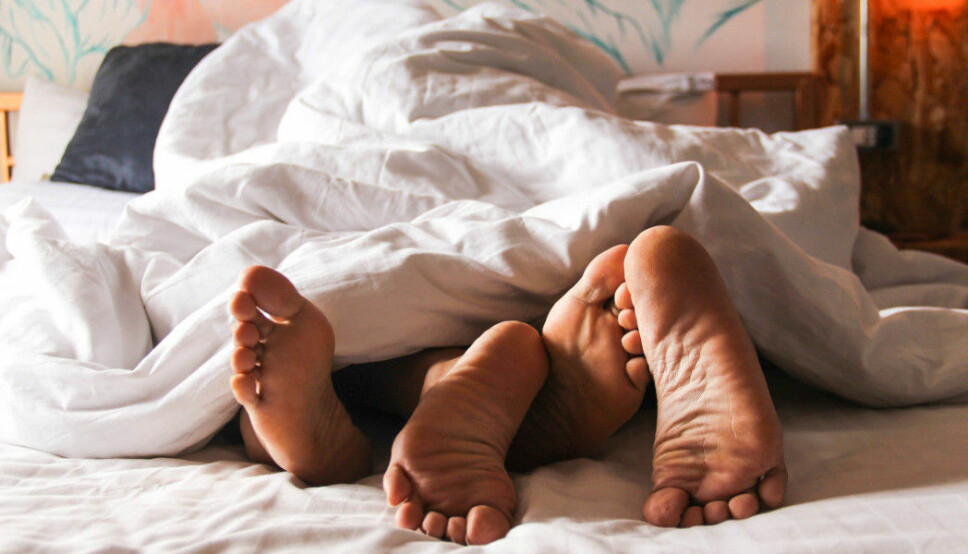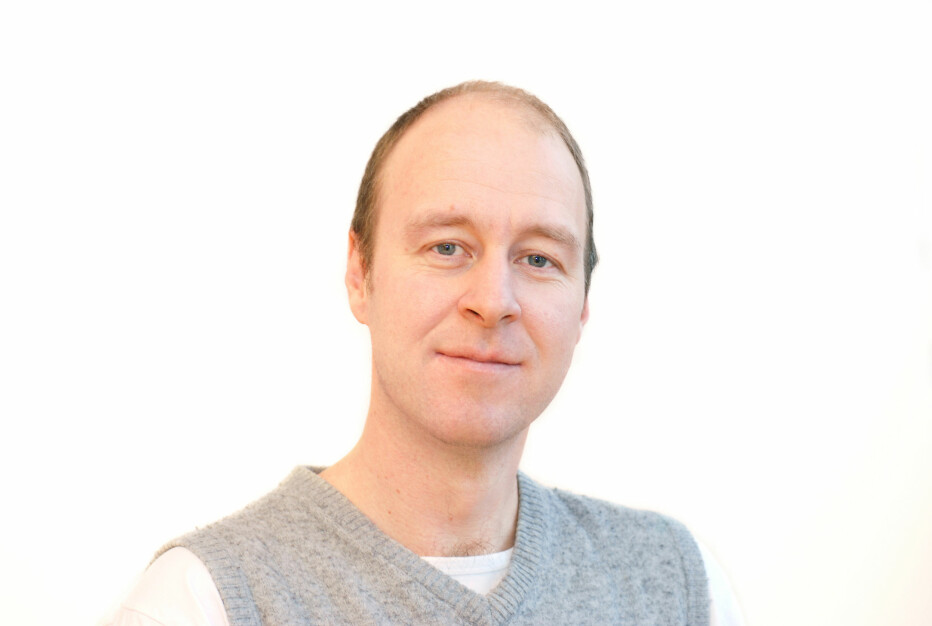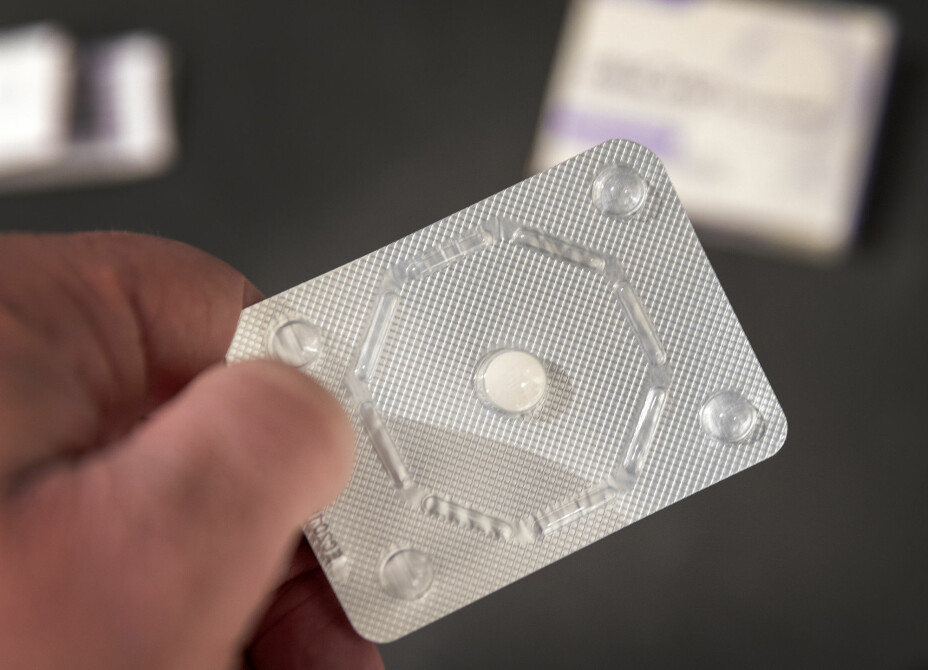
One in three Norwegian women has taken the morning-after pill
More than half of them had used emergency contraception more than once in their lives.
If you have had unprotected sex, you can take a little pill afterwards to avoid becoming pregnant. For that reason, it’s often called the morning-after pill.
It turns out that a good number of Norwegian women have taken this pill once or more in their lives.
“It is quite common for women to have used emergency contraception, especially among younger women,” says Bo Terning Hansen at the Cancer Registry of Norway. He is one of the researchers behind the survey.
He and colleagues surveyed more than 45,000 Scandinavian women between the ages of 18 and 45. The survey was done in 2011-2012. An article based on the findings was recently published in the journal Acta Obstetricia et Gynecologica Scandinavica.
Norway’s rates of use are similar to neighbouring countries, but in 2011-2012, a few more women had taken the morning-after pill in Norway and Sweden than in Denmark.
Morning-after pills sales have dropped
Bo Terning Hansen is not aware of any newer surveys from Norway and thus does not know if the situation has changed in the last eight to nine years.
It probably has, says Steinar Madsen, Medical Director of the Norwegian Medicines Agency.
Sales of emergency contraception have fallen sharply in recent years, figures from the Norwegian Institute of Public Health show.
“At the same time, the use of long-acting contraception such as contraceptive implants and hormonal IUDs has increased. So the picture we have today is quite different,” says Madsen.
He believes fewer Norwegian women use emergency contraception now, even though sales figures cannot tell us how many women have used emergency contraception at some point in their lives, or whether individual women are using it less than before.
Fewer abortions
“It’s interesting that emergency contraception was so widely used. It shows that it is an important supplement to regular birth control,” says Madsen.
In 2009, the non-prescription morning-after pill became more readily available as stores and gas stations in Norway were allowed to sell it. But most people still buy it at a pharmacy.
In parallel with the decline in emergency contraception and the increase in long-term contraception, there have been far fewer abortions in recent years.
“In 2019, there was a historically low number of abortions in Norway. The decline in abortions over the last eight to nine years is particularly large for teenagers,” says Madsen, referring to a report from the Norwegian Institute of Public Health.

More emergency prevention with new partners
Half took the morning-after pill for the first time as teenagers. Terning Hansen is not very surprised by that. He believes this is mainly because young people have more new sexual partners and have not yet fully established habits for contraceptive use.
The younger you were when you first had intercourse, the more likely you were to use emergency contraception at one time or another.
The youngest women used contraception less frequently during their first sexual encounter than their older counterparts, a 2017 survey showed.
Seventeen per cent of Norwegian women who took the morning-after pill had used it in the past year. There was a greater chance that they had had new sex partners over the past six months — although they may have taken the pill before that time.
“The study confirms what we have believed. When you're in your teens, you often have a boyfriend, and then it ends. Then you put birth control on the shelf and are not prepared when prince charming shows up,” says Madsen.
“We have worked hard to get young people to keep using birth control continuously until they want children. Don't let it depend on whether you currently have a boyfriend,” he said.

Related to condom use
Women’s use of the morning-after pill in the past year is also related to having stopped using condoms during intercourse with a new partner during the past six months.
The survey doesn’t provide information on how often women had sex or whether they used birth control other than a condom.
In addition, researchers found that those who smoke or drink a lot of alcohol at one time, at least six units more than once a month, had used the morning-after pill more often than their more temperate peers.
If you are drunk, you’re probably less likely to have birth control in place.
But the researchers don’t know if this is actually the case. A woman may have used the morning-after pill during a sober period, even though she drinks a lot now.
“There is a connection, but you can ask how useful this information is,” Madsen says about the link between alcohol use and emergency contraception.
Don't know when women will need emergency contraception
Terning Hansen emphasizes that the researchers know nothing about why the women in the survey took the pill.
“There can be many situations that the women themselves cannot control. A condom may break, or it may be a case of abuse,” he said.
About half have used emergency contraception several times. But Terning Hansen doesn’t want to make any moral judgements about this finding.
“You have ended up in a situation that you do not want to be in and then you have to find a solution for it. But it is clear that it is better to protect yourself from an unwanted pregnancy in ways other than using emergency contraception, because it does not protect against STDs,” he said.

Higher education increases likelihood of use
Women with more education are most likely to have taken the morning-after pill at some point in their lives.
“It's a little weird, I think. We don't know why,” says Terning Hansen.
He wonders if it’s because these women are more likely to know about the option.
There were a few more people with higher education in the survey than among those who did not answer, and the participants were slightly older, so the researchers cannot say for sure that they represent Norwegian women in general. Seven out of ten had taken education beyond high school.
But the participants were selected at random and many answered the questionnaire. These facts make the researchers more confident that the survey does provide a snapshot of the population from a decade ago.
Not recommended as normal birth control
The morning-after-pill does not cause more side effects than other hormonal birth control, even if a woman takes it many times.
“But we don’t recommend that emergency contraception be used instead of other kinds of birth control,” Madsen from the Norwegian Medicines Agency said.
The morning-after pill does not protect women against sexually transmitted diseases. It is also not 100 per cent effective in preventing pregnancy, although it works well if it is taken soon after intercourse.
Oral contraceptives, the birth control ring and the birth control patch are also not the safest, because many people use them incorrectly, especially among the youngest users, according to a 2012 US study.
The health authorities therefore recommend long-term contraception for young women.
Translated by Nancy Bazilchuk
Reference:
Guleria et al: Emergency contraceptive pill use among women in Denmark, Norway and Sweden: Population-based survey. Acta Obstetricia et Gynecologica Scandinavica, 5 May 2020. doi: 10.1111 / aogs.13849.
———


































